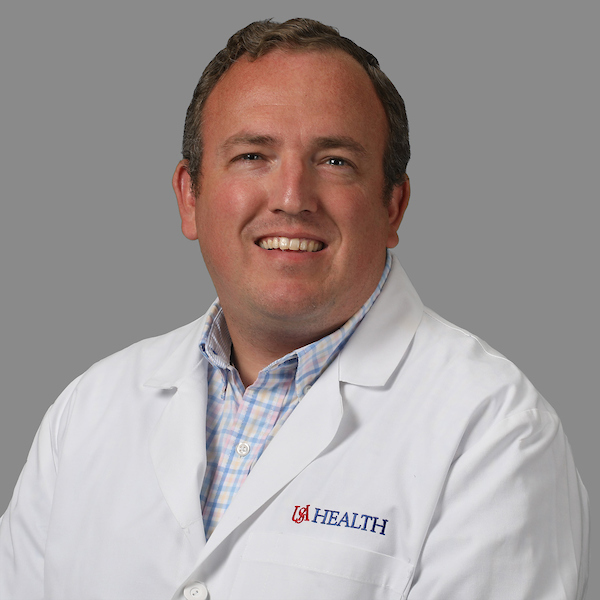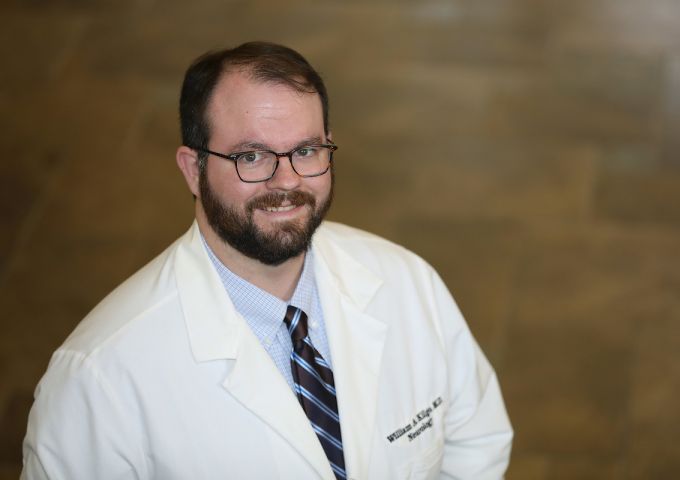USA Health adds surgeon with interest in weight-loss procedures
Richard Rieske, M.D., chose to return to USA Health, where he trained because of those who played a formative role in developing him “as a surgeon and a human.”
By Carol McPhail
[email protected]
Richard Rieske, M.D., became interested in surgery as a third-year medical student at the University of Arkansas for Medical Sciences in Little Rock. He had amazing mentors who took the time to share their passion for surgery and opportunities in the field.

But it wasn’t until his general surgery residency at the University of South Alabama/USA Health that he found a more targeted calling – helping patients with obesity.
“Weight-loss surgery became my passion after working as a resident with Dr. (William) Richards, chair of surgery, and this interest only grew during my fellowship training,” Rieske said. “Watching patients transform their daily lives and overall health is humbling and inspirational, to say the least.”
Rieske recently returned to USA Health as a general surgeon and assistant professor of surgery at USA’s Frederick P. Whiddon College of Medicine after completing a fellowship in advanced gastrointestinal and minimally invasive surgery at Vanderbilt University Medical Center in Nashville.
In his new role, Rieske will focus on weight-loss surgery and foregut procedures, including gastric sleeve, gastric bypass, bariatric endoscopy, and revisional bariatric procedures. He will use his training in laparoscopy, robotics, and upper GI endoscopy to care for patients before and after weight-loss surgery.
The Centers for Disease Control and Prevention estimates 2 in 5 adults in the U.S. are affected by obesity that puts them at risk for many serious diseases and health conditions. Of those, 58% have been diagnosed with high blood pressure, a risk factor for heart disease, and 23% have diabetes.
“The obesity epidemic is the most ignored health crisis to date. Projections from our nation’s health authorities suggest that by 2030 half the nation will suffer from obesity,” Rieske said. “We have effective medical and surgical therapies to treat patients. We just need to be more effective in educating both medical professionals and the public about the treatments and their benefits to patients.”
He chose to return to the academic health system where he trained because of those who played a formative role in developing him “as a surgeon and a human.”
“You come to USA Health to be a part of something bigger, to be a resource for the community and to train future surgeons who will go on to care for thousands of patients,” he said. “There is a lot of opportunity to make a meaningful impact.”
Rieske knows what it’s like to have a close family member endure a serious health event. When he was in medical school, his mother suffered a heart attack and cardiac arrest, and developed a rare blood clot that blocked the blood flow into both lungs. He and other family members watched over her for more than a month in the hospital and facilitated doctor visits and treatments as she recovered.
“I’ve lived firsthand what our patients and their families go through every day,” he said. “This has given me a unique patient- and family-centered perspective to the care that I bring to my practice.”




